
Latest Coronavirus Disease COVID 19 News and Research
Can SARS-CoV-2 die out without immunity?
As the COVID-19 pandemic continues to take thousands of lives every day in different parts of the world, vaccine and antiviral research is continuing, as the only hope of emergence from under its shadow. However, a recent study by researcher Bhavin S Khatri at Imperial College London and published on the preprint server medRxiv* in August 2020 suggests that the pandemic may die out more rapidly than thought, provided the reproduction number is kept low.
Search engines can spread false information on vaccines, shows study
Anti-vaccine websites, which could play a key role in promoting public hesitancy about a potential COVID vaccine, are far more likely to be found via independent search engines than through an internet giant like Google.
COVID-19 during pregnancy shows no affect on placental structure and pathology
A new study published on the preprint server medRxiv in August 2020 shows that the placenta in pregnant women infected with severe acute respiratory syndrome coronavirus 2 (SARS-CoV-2) does not show any signs of abnormality that can be attributed to the infection.
Preliminary Mayo Clinic results from convalescent plasma in 35,322 patients
A new study published on the preprint server bioRxiv* in August 2020 reports the preliminary results of the US Expanded Access Program (EAP) for CP. The EAP aimed to facilitate access to CP as well as to evaluate the safety of this therapy. However, the current study reports the results of an initial assessment of this agent.
De novo designed SARS-CoV-2 nanoparticle vaccine
In light of the continuing threat to public health, social functioning, and economic activity posed by the COVID-19 pandemic, scientists are working urgently to bring out a vaccine that is both safe and effective, and capable of mass production. A new paper published on the preprint server bioRxiv* in August 2020 shows that such a vaccine may be produced by using arrays of one severe acute respiratory syndrome coronavirus 2 (SARS-CoV-2) protein on a nanoparticle platform.
Experimental COVID-19 vaccine prevents severe disease in mice
Now, a novel experimental vaccine that is made from a mild virus genetically-modified to carry an essential gene from the severe acute respiratory syndrome coronavirus 2 (SARS-CoV-2), the virus that causes the coronary disease (COVID-19), has shown promise in preventing pneumonia in mice infected with the virus.
WHO urges the public to avoid routine dental work amid the coronavirus pandemic
With the cases of severe acute respiratory syndrome coronavirus 2 (SARS-CoV-2) skyrocketing globally, the World Health Organization (WHO) is now warning the public to avoid routine dental procedures to reduce the risk of infection.
Health and safety consequences of policing homelessness
Two weeks ago, Colorado State Patrol troopers began clearing out nearly 200 residents from homeless encampments that surround the Colorado Capitol.
UD researchers gain new insights into hepatitis B virus' genetic blueprint
Researchers at the University of Delaware, using supercomputing resources and collaborating with scientists at Indiana University, have gained new understanding of the virus that causes hepatitis B and the "spiky ball" that encloses the virus's genetic blueprint.
Vaping raises COVID-19 risk among teens and youth
A new study by Californian researchers has shown that youth and teenagers who use electronic cigarettes are five times more likely to be affected by COVID-19 disease, and those that use both electronic and traditional cigarettes are seven times more likely to get the infection.
JAK inhibitors or type I interferon shown to reduce mortality in COVID-19
Now, a new study by researchers at Yale University and published on the preprint server medRxiv in August 2020 reports that the use of two drug categories, namely, JAK inhibitors and Type I interferons (IFNs), is associated with a dramatic improvement in mortality in COVID-19.
Study finds higher incidence of physical intimate partner violence during COVID-19
There was a higher incidence and severity of physical intimate partner violence (IPV) among patients seen at a large, academic medical center in the U.S. during the COVID-19 pandemic compared with the prior three years, according to a new study published in Radiology.
COVID-19 lockdown on sexual and reproductive health in Australia
The COVID-19 pandemic spread to Australia early this year, triggering a national lockdown from March 22 to May 8, 2020. Non-essential travel was strongly discouraged unless to access essential goods and services, to receive or provide care, to exercise, or to attend work or education where these activities could not take place at home. This approach led to very few cases and deaths in Australia. However, the lockdown led to other forms of hardship. One of these areas is that of social and reproductive health (SRH).
Membrane nanoparticles acts as a bait to trap SARS-CoV-2
In an exciting new bioRxiv preprint research paper, Chinese researchers describe the development of membrane nanoparticles from ACE2-rich cells with a potent capacity to block the adherence of severe acute respiratory syndrome coronavirus 2 (SARS-CoV-2).
Synthetic nanobodies prevent SARS-CoV-2 infection
A team of researchers from the University of California San Francisco has created a powerful nasal spray or inhaler that can provide high-grade protection against severe acute respiratory syndrome coronavirus 2 (SARS-CoV-2). The report is presently available on the bioRvix* preprint server.
Lockdowns and business closures could fuel the rise of obesity, warn researchers
Scientists sound the alarm: Lockdowns may escalate the obesity epidemic Emotional stress, economic anxiety, physical inactivity and social distance - locking down society to combat COVID-19 creates psychosocial insecurity that leads to obesity, warn three Danish researchers.
New research finds mHealth technologies as a viable option to monitor COVID-19 patients
An international task force, including two University of Massachusetts Amherst computer scientists, concludes in new research that mobile health (mHealth) technologies are a viable option to monitor COVID-19 patients at home and predict which ones will need medical intervention.
USC researchers find the likely order of COVID-19's symptoms
USC researchers have found the likely order in which COVID-19 symptoms first appear: fever, cough, muscle pain, and then nausea, and/or vomiting, and diarrhea.
KHN’s ‘What the Health?’: Kamala Harris on health
California Sen. Kamala Harris, the newly named running mate for presumptive Democratic presidential nominee Joe Biden, doesn't have a lot of background in health policy.
Study shows how viruses operate and evade the immune system
University of Otago researchers have learnt more about how viruses operate and can evade the immune system and are now using their discovery to help learn more about COVID-19.
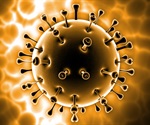
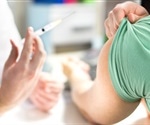
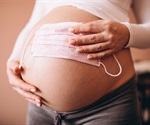
_3817013e333844f99ba3c84090200e8b-150x125.jpg)
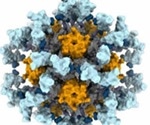
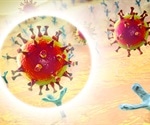
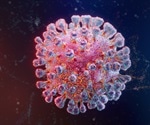


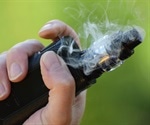
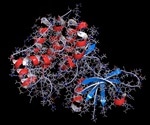
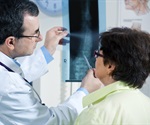
_0c7a7a334bac45eda9b2134a968ddcbd-150x125.jpg)
_f9dcc8a451334775b1c90b8201a67dbd-150x125.jpg)
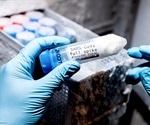
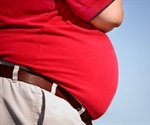
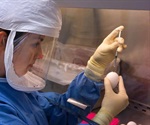


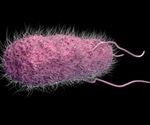
































No hay comentarios:
Publicar un comentario